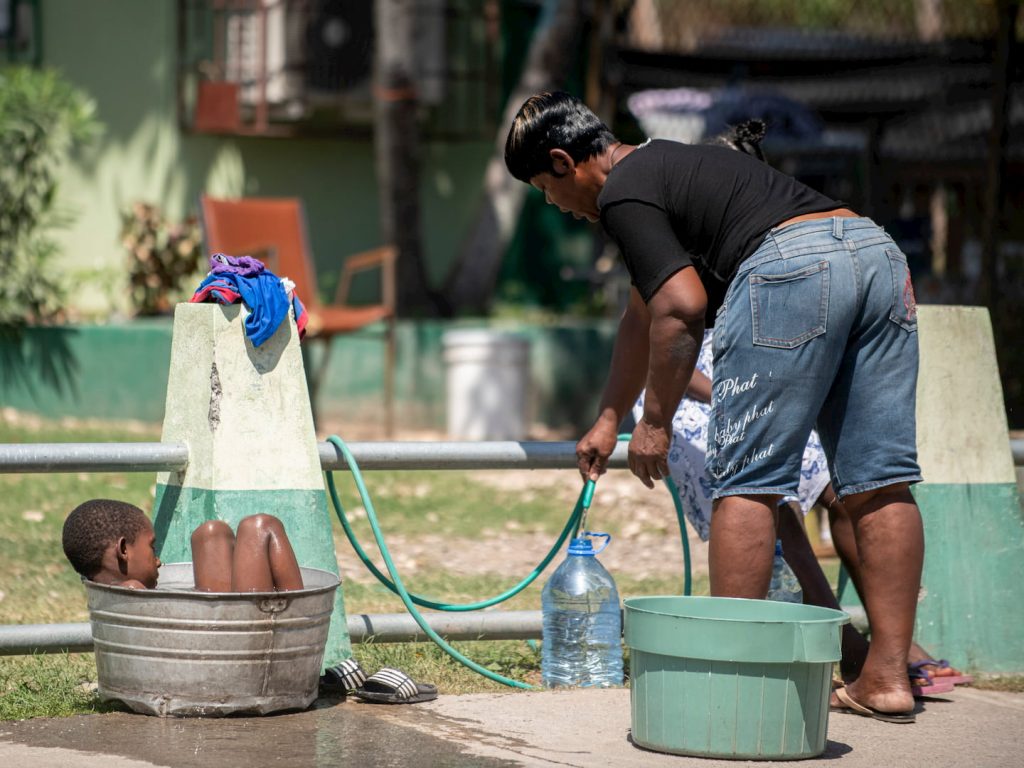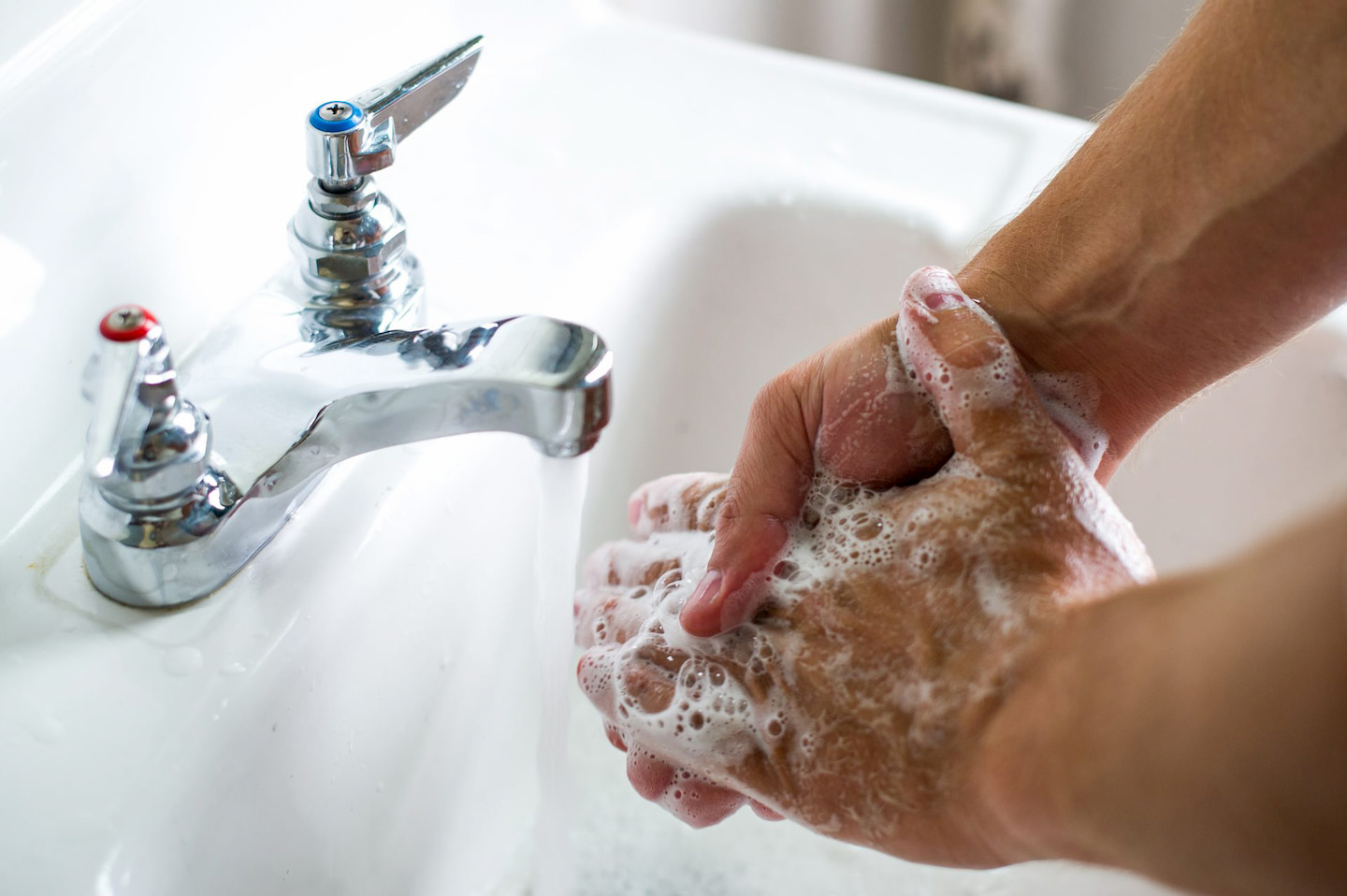If nothing else, the unfolding situation with the novel coronavirus (COVID-19) outbreak is teaching us how and why we need to get back to basics. There is yet to be an advisory to the public about self-care that has not included and emphasised the need to apply the highest standard of hygiene. According to KinTeet, this is the standard on which his granny has always relied and undoubtedly one of the reasons for her longevity. It is a cornerstone of her religious philosophy of practice, ‘cleanliness is next to godliness’. This requires heavy use of and reliance on water. In this latest crisis, we are discovering that there is perhaps no better singular indicator of the inequities in Jamaica than in the availability or lack of water and how that impacts every area of personal, community and national life.
Go past any river in Jamaica, if it has not been diverted to make way for the progress of road construction or succumbed to extended droughts, and you are likely to see women and children washing and men bathing. This might satisfy the post-card rendition of another exotic aspect of the Jamaican culture but HeartBun would be willing to bet that not one of the women carries a thought of this bit of exotic in the basket of dirty clothes on her head, as she steps out of her house, travels whatever distance while balancing it as she gingerly walks on rocks to find just the right spot to fulfil this domestic obligation. In fact, these days she is probably sharing with her urban counterpart, at the community standpipe, thoughts of exposure and lack of privacy as well as concerns for safety and security. They would both rather be able to undertake their domestic operations in the comfort of their own homes.

In recent times, there have been numerous public education and unashamed commercial advertising campaigns encouraging us to drink as much as two gallons of water each day as part of a health maintenance routine. The fact that the water is sold in plastic bottles that sometimes end up in gullies where they quickly become breeding grounds for all creatures unhealthy; clog the gullies, exacerbating flooding at the slightest hint of rains or end up in the sea affecting the fish as a source of omega-3, which is also supposed to be good for health is as ignored as the question of how many Jamaicans can afford the expenditure on this health item. Water is also needed for cooking, keeping houses and communities clean, maintaining plants and gardens and is perhaps the central ingredient to the vision of food security, eating what we grow and growing what we eat. Yet it remains out of reach for too many Jamaicans, beyond the available financial resources of too many more and its intermittent supply in many instances disrupts not just the daily operation of many but leads to enough stress to threaten their mental health.
HeartBun highlights the irony of this state of affairs existing even in places such as St Mary, which is said to have the greatest number of waterfalls in any parish in Jamaica. In spite of famed rivers such as the Rio Nuevo, White River and Wag Water, far too many places, including main towns are without water. It is not uncommon to see boys at the break of day, pushing market cars laden with plastic buckets of water they have had to fetch as their morning chore so that their families might get on with the business of whatever they need to do before they set off for work or school. They are still expected to have the required energy and wakefulness in order to fulfil the mantra of the Ministry of Education that ‘every child can learn, every child must learn’. In urban Jamaica, ‘water come’ has become an all too frequent initiator of conversation across fences as neighbours jubilantly alert each other of the precious commodity dripping through the pipes. Then they scramble to collect each drip sacrificing all other chores and sometimes appointments for as long as it takes them to stock up.
This is no way to head out to 2030. Dirty. Exhausted. Thirsty. Now we are told that many of us will not make it because of the dreaded COVID -19. If truth be told, the journey might be cut short because of the inability to wash your hands. HeartBun checked Vision 2030 on water. Specifically, is the plan for health co-dependent on water? Is there any clear articulation of a relationship between the sector plans for education, health and water? Each sector plan is brilliantly written but like the cheese, each stands alone. None of them indicates how they join-up to realise the overall goals that lead to the place of choice. No wonder we all operate in silos. Would the water workers behave differently if they understood their contribution to a healthy nation? There is no orientation programme for sector workers in spite of whatever is a said about ‘consultation’, ‘involvement’ and ‘social participation’. Furthermore, each plan is predicated on the assumption of stability. Thus we are bound to enter panic mode if something changes.
COVID -19 is another wake-up call to the critical nature of those basic things we take for granted or ignore. The centrality of water to development is one. Another is the empowerment of people through strong community and civic organisations to manage the process. Without these, we shall “continue to grapple with issues relating to poverty and unemployment which contribute to inequity in some health outcomes”. And we might not be able to even wash our hands.
Amina Blackwood-Meeks, PhD, Cultural Studies, is a lecturer and college orator at The Edna Manley College of the Visual and Performing Arts.
Viewpoints is committed to expanding its range of opinions and commentary. Share your views about this or any of our articles. Email feedback to viewpoints@gleanerjm.com and jamaicantukuma@gmail.com.







